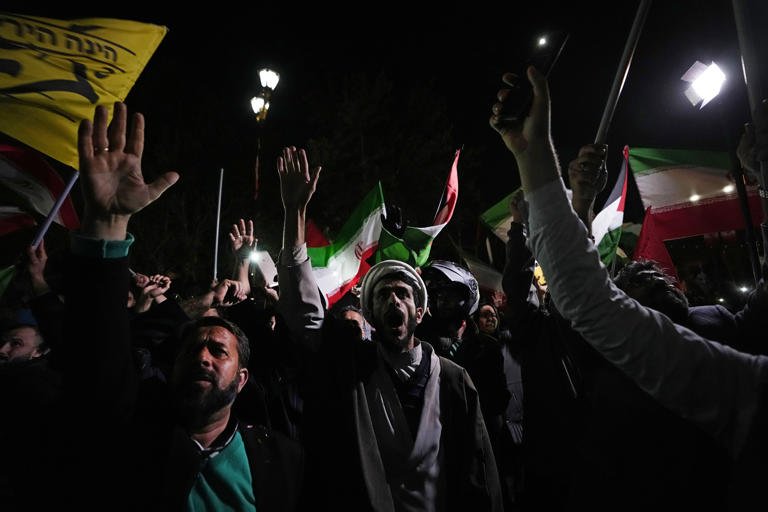Introduction:
In the heart of the Middle East, tensions between Israel and Iran have once again flared up, capturing the attention of the world. The recent events have led to a critical juncture where Israel must carefully weigh its response to Iran’s unprecedented aerial assault. As we delve into the complexities of this situation, we’ll explore the factors driving Israel’s decisions, the international dynamics at play, and the hopes for a peaceful resolution amidst the turmoil.
The Context: Israel’s Dilemma
At the center of this tense standoff is Israel’s war cabinet, grappling with the weighty decision of how to respond to Iran’s aerial assault. Prime Minister Benjamin Netanyahu has tasked the Israel Defense Forces (IDF) with providing target options, seeking a message of strength without causing casualties. This delicate balance reflects Israel’s desire to assert its security while avoiding further escalation.
The International Stage: Allies and Alliances
Amidst the uncertainty, Israel finds itself navigating a complex web of international relationships. The United States, United Nations, and Israel’s European and regional allies have all urged restraint in the face of escalating tensions. The coordinated response to Iran’s assault, with assistance from the US, France, and Britain, highlights the potential for a strategic international alliance against Tehran.
The Strategic Opportunity: A Chance for Unity
Despite the immediate challenges, some see a glimmer of hope amidst the chaos. Analysts point to an unprecedented opportunity for Israel to bolster its regional alliances and reposition itself on the global stage. By leveraging the momentum of a united front against Iran, Israel could forge new partnerships and strengthen its security posture in the long term.
The Human Impact: Fear and Resilience
As Israel weighs its options, the human toll of the conflict weighs heavily on its citizens. The recent assault has shattered the sense of security for many, reminding them of the ongoing threats they face. Yet, amidst the fear, there is resilience. The successful repulsion of the attack has restored a sense of national confidence, albeit tinged with the awareness of continued vulnerability.
The Path Forward: Balancing Act
As Israel contemplates its next steps, it must tread carefully to avoid further bloodshed and instability. The calls for restraint from allies underscore the importance of thoughtful diplomacy and strategic calculation. While the temptation to respond forcefully may be strong, the long-term interests of peace and security must guide Israel’s actions.
The Regional Dynamics: Gaza and Beyond
Beyond the immediate crisis with Iran, Israel faces ongoing challenges in the Gaza Strip. The recent escalation has reignited debates over how best to address the hostage situation and confront Hamas’s aggression. While military options remain on the table, there is also recognition of the need for a broader strategy that addresses the root causes of conflict in the region.
The Call for Unity: Voices of the People
Amidst the cacophony of voices, ordinary Israelis are grappling with their own hopes and fears for the future. From Jerusalem to Tel Aviv, there is a sense of solidarity in the face of adversity. Yet, there is also division, reflecting the complexity of the issues at hand. Whether prioritizing security or seeking a path to peace, Israelis are united in their desire for a better tomorrow.
Conclusion: A Path to Peace
As we reflect on the events unfolding in the Middle East, one thing is clear: the path to peace is fraught with challenges but not impossible. Israel’s response to Iran’s aggression will shape the region’s future, with far-reaching implications for stability and security. In the face of adversity, there is an opportunity for dialogue, cooperation, and reconciliation. It is up to all stakeholders to seize this moment and chart a course towards a brighter tomorrow.

